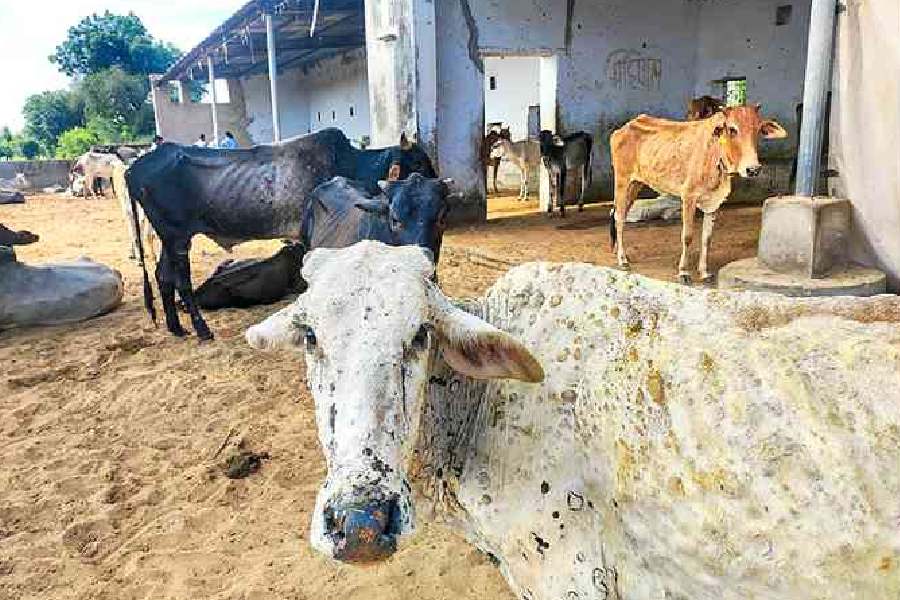Cases of lumpy skin disease (LSD), a viral infection of cattle, have been reported from Darjeeling and Kalimpong districts and certain areas of neighbouring Sikkim over the past couple of weeks.
The infection, which is highly contagious and leads to reduction in milk yield and abortion among pregnant animals, has made the Union ministry of FAHD (fisheries, animal husbandry and dairying) plan to send a team of experts to handle the situation.
“The disease doesn’t infect humans but can largely affect the cattle population. It is necessary to control and contain the infection in areas from where cases are reported,” said a veterinary expert.
Raju Bista, the Darjeeling MP, had reached out to Parshottam Rupala, the Union minister FAHD and his junior minister Sanjeev Kumar Balyan, seeking their intervention in this situation.
“I had informed them about the increasing cases of LSD in cattle in Darjeeling and Kalimpong districts. They have acted on it and have announced all necessary steps to provide technical and financial support in close coordination with the state and the district officials of the animal husbandry department,” Bista said on Sunday.
Sources in the ministry said that no death of cattle has been reported so far from LSD in Darjeeling and Kalimpong.
“Around 400 unvaccinated cattle in Darjeeling district and 2,000 more in Kalimpong district were infected, out of which 200 and 1,200 respectively have already recovered. There is no report of LSD in sheep and goats,” said a source.
The infection has been reported from three districts of Sikkim, Soreng, Pakyong, and Namchi, said a state official on Saturday.
From these areas, samples had been sent to the National Institute of High Security Animal Diseases in Bhopal where they tested positive.
The infection has prompted the state to prohibit the daily entry of cows from outside Sikkim, said sources.
Sources in the FAHD ministry said that a central team comprising an officer each from the North Eastern Regional Disease Diagnostic Laboratory, Guwahati, and the Eastern Regional Disease Diagnostic Laboratory, Calcutta, has been constituted.
“The team members will visit affected areas in Darjeeling and Kalimpong districts to assess the situation and support the state animal husbandry department to control and contain LSD. The field implementation, however, lies with the state (the Bengal government) because animal husbandry is a state subject,” said a source.











